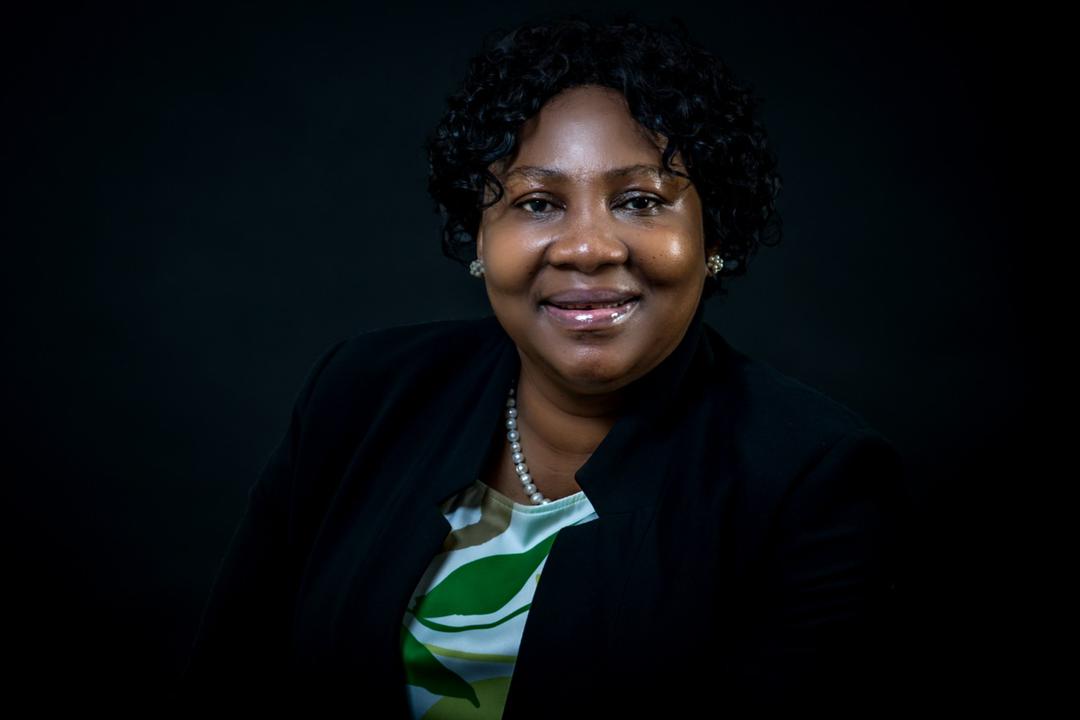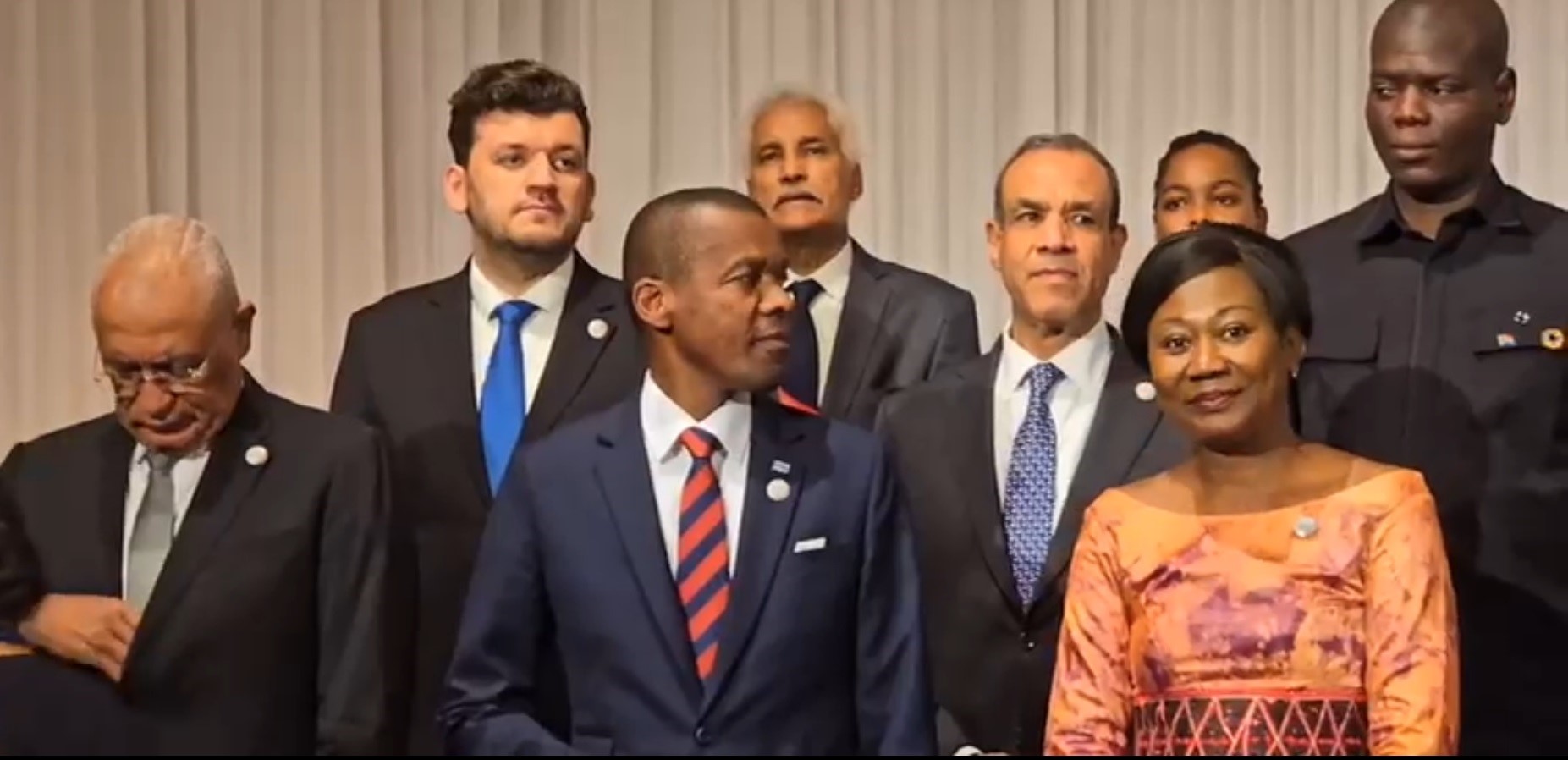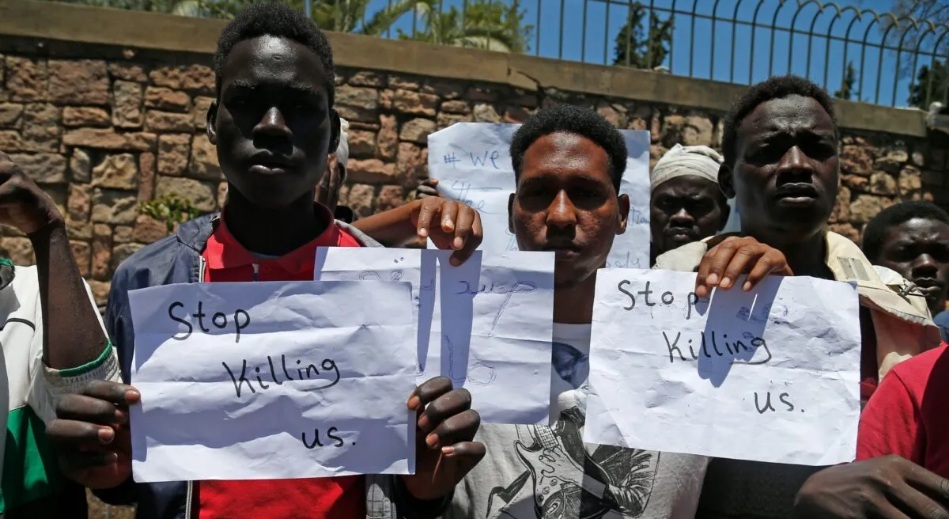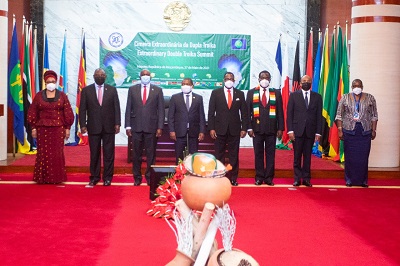
The indefatigable Secretary General of the Southern African Development Community Parliamentary Forum (SADC PF) Boemo Sekgoma explains the rationale for developing the Model Law on Public Financial Management
The Pan Afrikanist Watchman
There are major symptoms of economic frailty, excessive budget deficits, loss in purchasing power for citizens, and poor debt servicing across the Southern African Development Community (SADC) region.
This, according to the Secretary General of the SADC Parliamentary Forum (SADC PF) Boemo Sekgoma, is despite a general increase in economic growth perceived in 11 out of 15 SADC Member States over the period 2015 – 2018.

Explaining the rationale for the development of the Model Law on Public Financial Management (PFM), which is hoped to be endorsed by the ongoing 51st Plenary Assembly of the SADCPF, Sekgoma said that in 2018, Government debt in SADC as a percentage of GDP was the highest since the last 10 years.
Additionally, it is said that in the period 2015-2018, reports of the Public Accounts Committees of more than six (6) SADC countries indicated situations where public funds appropriated by Parliament may have been misused due to administrative lapses.
The explanatory note says that this is reflective of root causes whereby Parliament is often unable to achieve its functions in public financial management efficiently, leading to: lack of prudential financial planning; lack of oversight in the procurement processes of the State; and possible wastages of public funds through corruptive practices.
Other factors that influenced the development of the Model Law on Public Financial Management hinge on the many legal and regulatory gaps across the SADC region which undermine the functions of Parliament and therefore impede on sound public financial management.
According to the explanatory note those identified as currently existing across the SADC region include:
- Narrow ambit of reports under scrutiny of Public Accounts Committee: In at least five (5) SADC countries, the Public Accounts Committee examines only the report of the Director of Audit/Auditor General, and not the audit reports of other statutory bodies or public authorities.
- Lack of enforcement powers of the Public Accounts Committee: Moreover, in all SADC countries, it has been observed that Public Accounts Committees do not have sufficient enforcement powers pursuant to the examination of the report of the Director of Audit/Auditor General. In most cases, the report of the Public Accounts Committee is tabled in Parliament, without follow-up action.
- Lack of enforcement for regulation of public sector debt: In at least four (4) SADC countries, there are laws or administrative guidelines on the management of public debt, with targets such as 50% of GDP, but without any penalty on Government if this debt target is not achieved.
- In more than five (5) SADC countries, the laws and administrative guidelines on debt management and related targets as a percentage of GDP are unclear, if not inexistent. Moreover, the full details of existing public debt are often not disclosed in Parliament.
- Lack of performance-based budget with clear Key Performance Indicators: In nearly six (6) SADC countries, the budget process is not related to clear performance indicators for Ministries and public departments. In other words, a performance-based budget will ensure that budgets are voted when Ministries/public departments comply with a set of pre-agreed performance indicators for the completed year in relation to set programmes.
- Disconnect between international commitments and budgeting: There is a general disconnect between commitments taken under treaties, declarations or covenants, and the actual budget passed in Parliament. For instance, it has been observed that SADC Member States’ budgets mostly fail to reflect corrective action with regards to the following: the 90- 90-90 targets to eradicate HIV/AIDS by 2030; the mainstreaming of gender through gender-based budgeting; and the implementation of Universal Health Coverage and the Sustainable Development Goals.
- Misuse of supplementary budgets: In at least three (3) SADC countries, Supplementary budgets are passed in Parliament after the end of the financial year, and these budgets account for expenses which were made over and above the budget appropriated by Parliament for that year.
- No limit on quantum of public contracts entered into by the Executive: In at least 10 SADC countries, there is no limit on the quantum of public contracts which can be entered into by the Executive. This in effect means that, over the democratic tenure of Government (usually a 5-year term), the Executive is legitimately entitled to pass any contract irrespective of whether the policy was included in the electoral manifesto, or whether the contract will involve debt servicing on the long term, that is beyond five (5) years.
Talking to the Pan Afrikanist, Sekgoma said that the Preamble of the Model Law on Public Financial Management is necessary to give background, especially the need to set the basic principles on which the Model Law is founded.
The SADC Model Law on Public Financial Management will be adopted by the SADC Parliamentary Forum’s Plenary Assembly and will serve as a benchmark and guiding legal instrument for national Parliaments to reinforce their domestic legal framework on public financial management.
The Model Law will be incorporated by SADC Member States through
amendments conducted to the Constitution, finance laws, regulations or the Standing Orders and Rules of the National Assembly, as may be necessary.
The overarching objective of the SADC Model Law is to ensure that SADC national Parliaments are enabled to conduct their legislative, budgetary and oversight functions for public financial management in a way that is transparent, efficient and responsive to the needs of SADC citizens.
Public financial management refers to the administration and supervision exercised over the finances of the State. It is a continual and ongoing activity.
The SADC Model Law is intended to trigger policy reforms and development or revision of substantive laws in SADC Member States as:
o it is a regional process shifting focus from national requirements to regional practice;
o it continues efforts already begun at national level and provides a well-researched model establishing a regional standard, against which efforts in Member States can be measured, that has been approved by Member States at a high level having, though not binding in itself, a binding effect on Member States; and it is dynamic as it makes it possible or easy to transpose or transplant its contents without much effort as it describes and explains its adopting or adapting process.
Member States are urged to use this Model Law to develop their national laws as it creates a robust and uniform legal framework relating to public financial management.
The SADC Model Law will assist policy makers and legislative drafters to address all the relevant areas in need of legislative reform without usurping the authority of national legislatures to determine the context, extent, style and form of their national laws.









